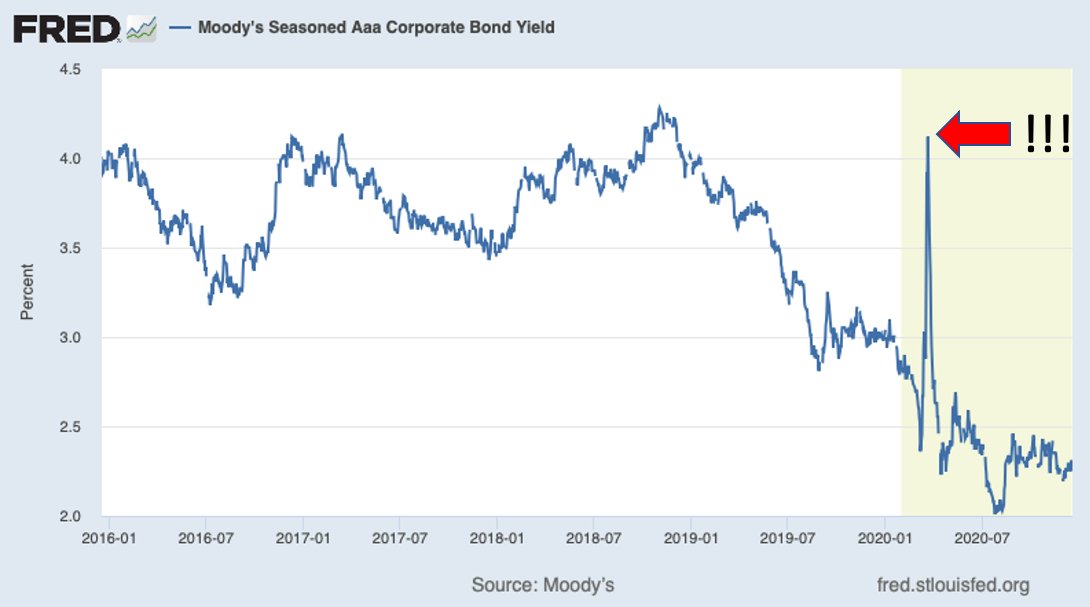
Watching the spectacle of Trump's final days makes me think about ... interest rates. Bear with me a minute 1/
https://twitter.com/maggieNYT/status/1340349856574038017
If you follow economics you may be aware how the consensus keeps predicting a return to normal interest rates, which keeps not happening 2/
So it occurs to me that one could make a similar chart for Trump crazy, which people keep predicting will eventually subside 4/ 

Based on experience so far, nobody should count on any normalization. The only reason not to expect scenes of the Secret Service frog-marching him out is his lack of physical courage 5/
As I said, every time you think they've reached the limits of crazy they prove you wrong 7/
https://twitter.com/JayCaruso/status/1340355230077214720
• • •
Missing some Tweet in this thread? You can try to
force a refresh










